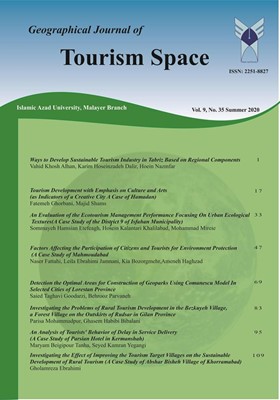An Analysis of Tourists’ Behavior of Delay in Service Delivery (A Case Study of Parsian Hotel in Kermanshah)
Subject Areas :
Maryam Beigpour Tanha
1
![]() ,
kamran yeganegi
2
,
kamran yeganegi
2
![]()
1 - PhD Student, Department of Marketing Management, Islamic Azad University of Hamedan, Hamedan ، IRAN
2 - Industrial Engineering Department , Islamic Azad University , Zanjan Branch
Keywords: Uncertainty, anger, service delays, willingness to buy, negative word of mouth marketing,
Abstract :
The purpose of this study is to examine the customer behavior affected by service delays. Nine hypotheses were tested in this study. The method of this research is descriptive-survey in terms of variables and applied in terms of purpose. The statistical population of this research was targeted in Parsian Hotel in Kermanshah. The sampling method in this study was simple random based on which 384 people were selected as a sample through Cochran's formula for data collection. In this study, a questionnaire was used as a research tool, the validity and reliability of which were confirmed. The confirmatory factor analysis was used to analyze the data and test the hypotheses using Amos structural equation software version 22. According to the research results, service delays have a positive effect on customers' anger and insecurity and a negative effect on their acceptability. Anger and insecurity also have a negative effect on the desire to buy and a negative effect on word of mouth marketing. In the end, acceptability also has a positive effect on the willingness to buy but a negative effect on the willingness to spread word of mouth.
_||_


